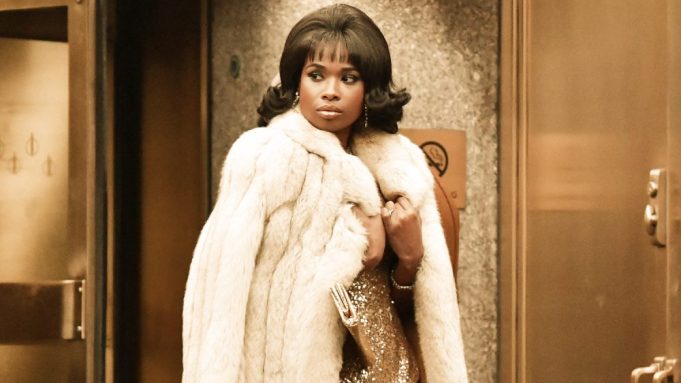By Mark Saldana
Rating: 2.5 (Out of 4 Stars)
A child shows signs of musical talent at a young age. Her parents encourage her to develop that talent. She eventually become a massive star and must face the demons of her past. Now, I know that this plot sounds all too familiar. And such is the plot of the new musical biopic for musical legend Aretha Franklin. While I don’t want to make light of any of the late artists talents and troubles, it is difficult to not criticize the typical formulaic path that Respect follows to tell the story of an extremely talented and influental artist. It takes some truly creative and imaginative filmmakers to tell the story of an artist in ways not previously executed, and there is little doubt that writers Callie Khouri, Tracey Scott Wilson, and director Liesl Tommy have some skills in making a movie. The problem is that they relied on a formula used and reused previously and so many other times that “The Queen of Soul” is not getting the movie adaptation of her story that she truly deserves.
Respect stars the multi-talented Jennifer Hudson as Aretha Franklin, a gifted black singer who passionately worked hard to make a successful career for herself in music while also attempting to use her success to enact real changes for her people. Raised by her preacher father C.L. Franklin (Forest Whittaker), Aretha not only faces the prejudices of her gender, but also the racial inequalities that exist throughout her lifetime. During her career, Aretha would face troubled romance with husband/manager Ted White (Marlon Wayans), the trials and tribulations of the Civil Rights movement, along with some troubles from her childhood, as she was sexually abused by one of her father’s friends. On top of all of these problems, Aretha would have to find her perfect voice and sound that would earn her well-deserved nickname.
Now, I know that all of what I said in the synopsis doesn’t sound all that bad, but the entire structure and presentation of the movie comes across as a near repeat of any black artist’s biopic. As I watched this film, I often cringed at the several worn-out tropes and cliches utilized to tell what should be a compelling story of an amazing woman. On the positive side, I must definitely applaud the performance of Jennifer Hudson, who not only does an exemplary job of recreating Aretha’s voice with her own, but also captures her spirit well. Don’t get me completely wrong, because the movie is not a terrible take on the legend’s life and career, but it isn’t one that is particularly that good.
In addition to the wonderful performance by Hudson, the film also features an extraordinary supporting cast. Forest Whittaker is also exceptional as Aretha’s father C.L. Franklin. The actor superbly presents C.L. as a passionate preacher and Civil Rights activist, but one with several weaknesses common to many men. Damon Wayans also performs well as Aretha’s first husband Ted White, an ambitious and sometimes shady music manager who is captivated with Aretha’s talent, but also wants to control her career and life with an iron fist. The movie also features great work and appearances by Marc Maron, Tituss Burgess, Saycon Sengbloh, Hailey Kilgore, Tate Donovan, and Mary J. Blige.
The bottom line is that there are some things to like about Respect. The singing and acting by Jennifer Hudson, the acting by the supporting cast, and even some of the directorial choices; however, when analyzed as a whole, the movie is just another example of another formulaic music biopic. My recommendation is to wait until this movie is available to watch at home.
